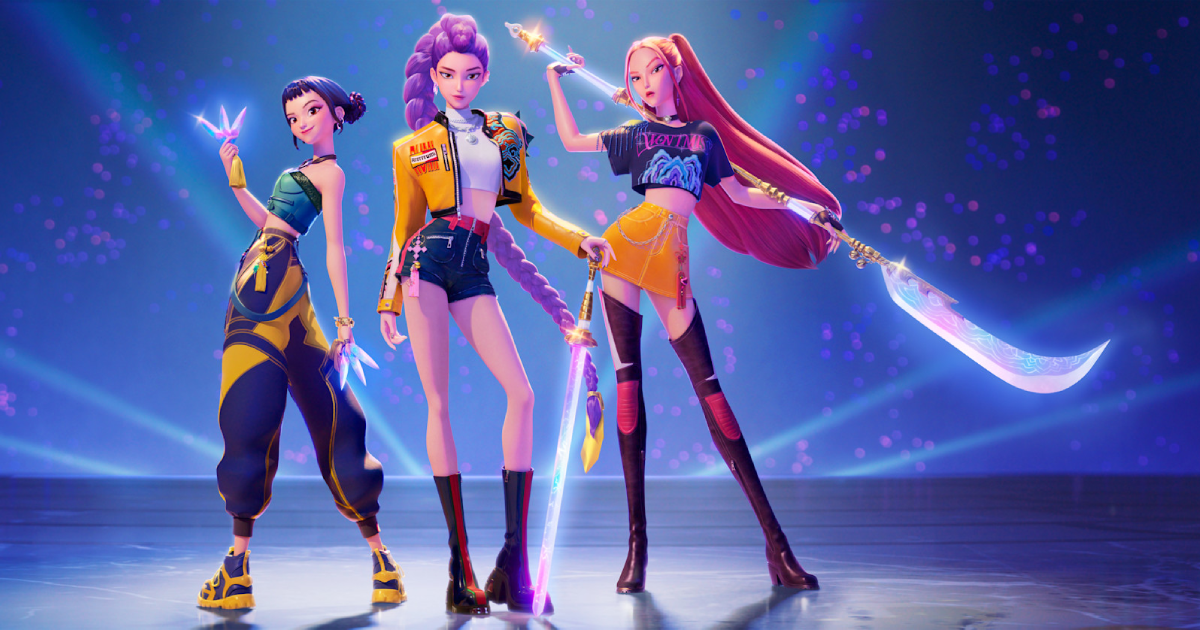The Strategy of Co-Master Toy Licensing Agreements

By Mark Seavy
Is the new co-master toy licensing agreement between Mattel and Hasbro for KPop Demon Hunters a sign of Netflix cashing in on a popular IP or tighter retail shelf space?
More than likely, it is combination of both. By splitting the KPop license and playing to the strengths of the two toymakers, Netflix is expected to generate significant minimum guarantees and royalty revenue. At the same time, the streamer avoids the pitfalls of a licensee gaining a master toy agreement with the aim of potentially blocking its competitors from fielding products in certain categories at a time when retail shelf space is at a premium.
In the case of KPop Demon Hunters, Mattel and Hasbro will launch products starting in spring 2026, although Mattel will take preorders for Mattel Creations items in November and Hasbro will take preorders for a co-branded Monopoly product this fall. Mattel will introduce dolls, playsets, action figures, collectibles, accessories, and co-branded collaborations. Hasbro, meanwhile, has the KPop license for role play, plush, board games, electronics, and trading cards.
“I think that’s (KPop Demon Hunters is) going to be a pretty lucrative license that’s had incredible staying power,” Hasbro CEO Chris Cocks told analysts recently. “It’s just the first new partnership inside our toys business. And there are a lot of reasons to believe our toy business is in the initial stages of a long-term growth from entertainment to toy partnerships, to new licenses.”
The awarding of co-master licensing agreements isn’t completely new, however.
Lucasfilms employed a similar strategy in the mid-1990s at the start of the Star Wars prequel films when it granted licenses to Hasbro and Galoob Toys (1996). Galoob Toys’ agreement focused on Micro Machines, the sales of which eventually prompted Hasbro to buy the company in 1998. That was after Hasbro had reintroduced Star Wars action figures (Air Force) in 1996, ending a 10-year hiatus in the category. Tiger Electronics (handheld electronic devices, which was also acquired by Hasbro in 1998) later joined the licensing program as well.
“Licensors now don’t have the luxury of letting a company take rights solely to block a competitor anymore, especially if they have a popular IP,” said Julian Montoya, SVP at The Noble Collection, which has Minecraft, Jurassic World, Harry Potter, and other licenses for collectibles. “If action figures are the category for your brand, you are not going to license to a single company anymore, even if they offer a lot of money. Licensors don’t have an appetite for that [blocking a category]. If a licensor is nurturing a brand, having someone block a category for their own strategic purposes doesn’t help you because it is too short-term. You need to take a long-term view on managing your IP and you want clear lanes for licensees.”
These evolving strategies to build comprehensive licensing programs has become increasingly important as shelf space at retailers has contracted—an issue that has been intensified with the closing of retail chains like Toys “R” Us and KB Toys.
In fact, IP owners are often now naming a “lead” companies for a specific category rather than master toy licensees that are responsible for multiple categories, licensing executives said. That strategy serves to have licensees focus on their strengths rather than fielding products in categories where they have little or no expertise.
Then there is the subject of cross-licensing within the toy business, a trend that has been growing.
Mattel and Hasbro forged such an agreement in 2023 and have since introduced a series of products, including Monopoly: Barbie Edition, Transformers Hot Wheels, Transformers UNO, and a Play-Doh Barbie collection. And, more recently, Hasbro licensed MGA Entertainment’s Little Tikes brand for Peppa Pig story kits and playhouses.
“Licensees have become used to the fact that they have to share these rights and as long as there are clear lanes—and if it is an IP they believe in—they are happy to share the business,” a toy licensing executive said. “It comes down to picking out who is the best in different categories with the most compelling proposition.”




